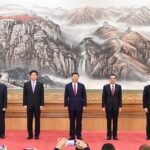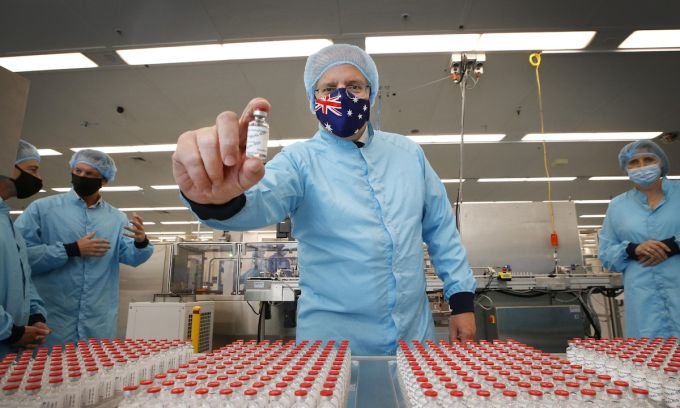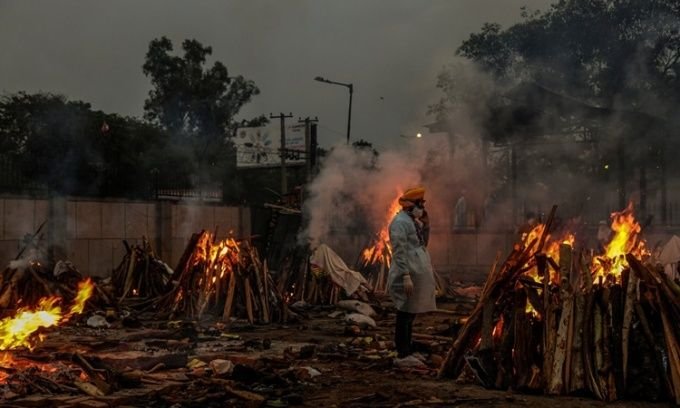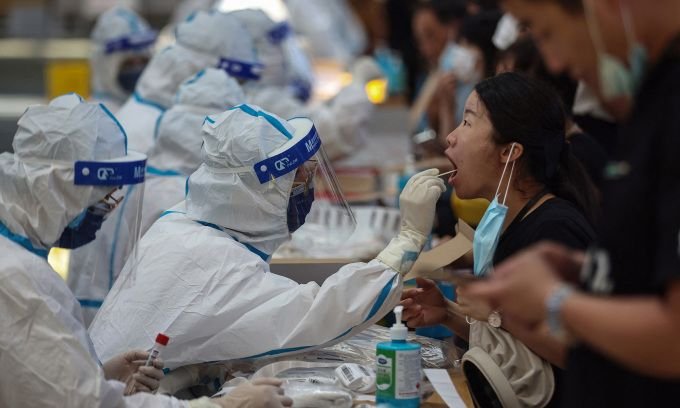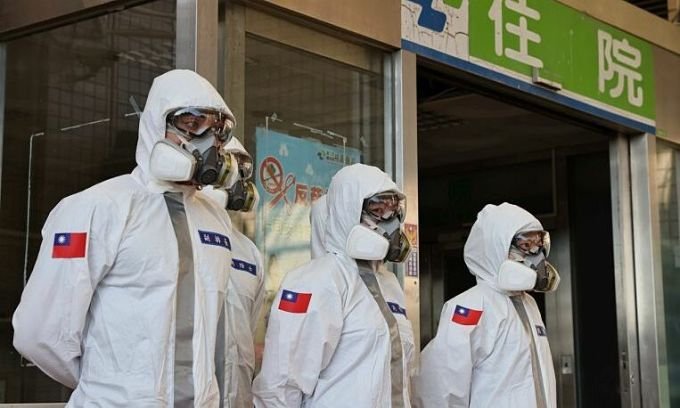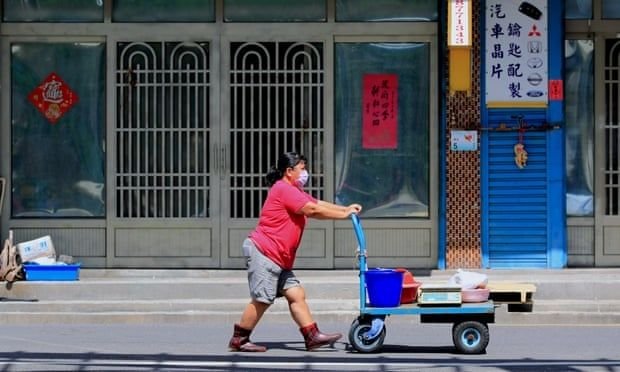The reason behind this optimism is that Prime Minister Scott Morrison has signed a deal for 10 million Pfizer doses and a contract is being negotiated with Novavax.
However, in reality, Australia was about four months behind its allies in ordering Pfizer vaccine supplies.
Not only is Australia `late to the party`, but the orders they have are also very small compared to other countries.
Prime Minister Scott Morrison at a vaccine factory in Melbourne in February. Photo: AAP.
John LaMattina, former director of Pfizer’s global research and development department, said Australia’s delay in reaching an agreement with Pfizer was understandable, given the initial success of the country’s Covid-19 control strategy.
`Once we see the incredible and unprecedented effectiveness of the mRNA vaccine, ordering just 10 million doses is unreasonable. When both Pfizer and Moderna showed strong evidence of vaccine effectiveness, every country should immediately
Instead, Australia plans to produce AstraZeneca and the University of Queensland is chosen as the deployment site.
Former Australian Ministry of Health official Stephen Duckett believes this is one of the decisions that led to the failure of Australia’s vaccine deployment plan.
The first sign that Pfizer wanted to strike a deal with Australia came in the middle of last year.
The meeting is scheduled to be held two weeks later.
`Pfizer side said ‘this is the vaccine we are developing’. We said we were interested in discussing the possibility of purchasing that vaccine but that stopped there. No other specific numbers were given in the report.
However, another anonymous source said an Australian official was very fierce, trying to bargain with Pfizer and demanding to review the company’s intellectual property rights to the vaccine.
Acting Victorian Premier James Merlino also said Pfizer made a big proposal to the Australian government in the first meeting.
However, the Australian Ministry of Health firmly denied this information.
Pfizer confirmed it was the one who proposed the 10 million figure.
The Australian government also denied accusations of not building a list of orders for many types of vaccines, saying it had secured five agreements to bring 195 million doses to the country.
However, the reality is that at the time of the first meeting with Australia, Pfizer did not hesitate to negotiate agreements with many other countries.
By February this year, Australia had doubled the number of orders with Pfizer.
`We have had a large number of requests for supplements from around the world and there will certainly be more after clinical trials show efficacy and safety,` said Anne Harris, Pfizer’s Australian chief executive,
Three months ago, Australia ordered an additional 20 million doses, but this move was considered too late amid increasing demand for the Pfizer vaccine.

People lined up waiting to get vaccinated in Sydney on July 7.
Last week, Queensland Premier Annastacia Palaszczuk expressed dissatisfaction with the number of vaccines provided to the state, knowing they would only receive about 65,000 doses per week until October. The state has repeatedly warned of the risk of `running out` of vaccines.
The batch of mRNA vaccines that Australia ordered is not expected to arrive before the third quarter of this year.
`That puts countries like New Zealand and Australia at the back of the waiting list for those vaccines,` he said.
According to the latest figures from the federal health agency, Australia has injected 3.2 million Pfizer doses and 5 million AstraZeneca doses.
In a recent press conference, Health Minister Greg Hunt confirmed an increase in supply in July and August from one million doses to 2.85 million doses.
By October, Australia could deliver about two million Pfizer doses and half a million Moderna doses per week, Duckett said.
`The government, with its vaccination implementation consulting team, has had many months to learn from its mistakes,` Anika Stobart wrote on The Conversation.

